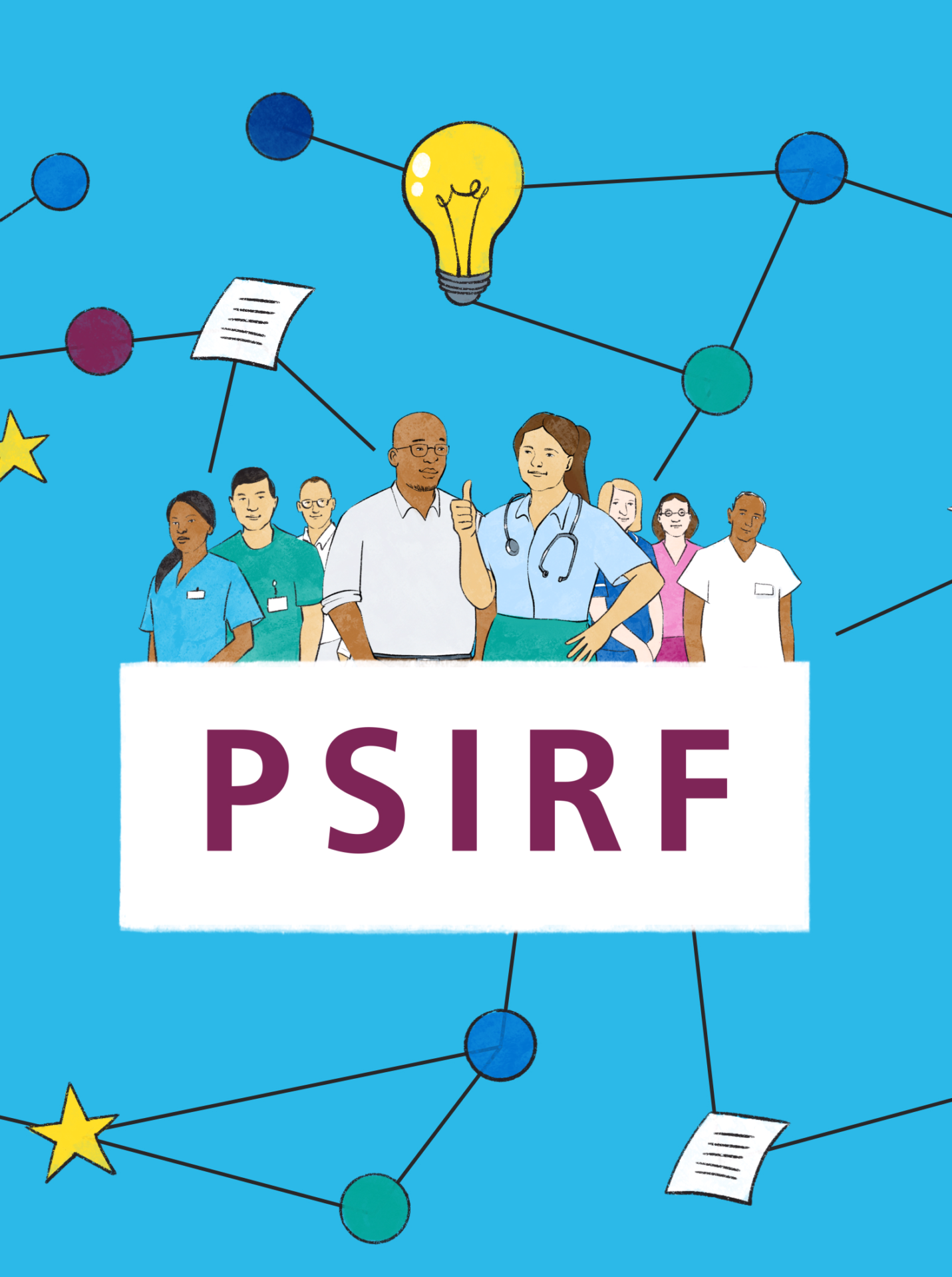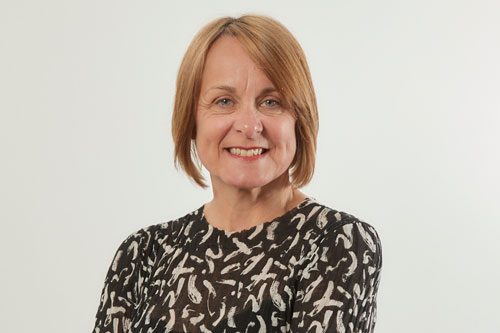 Dr Cheryl Crocker, AHSN Network Patient Safety Director, discusses how Patient Safety Collaboratives (hosted by the AHSN Network) are supporting ICSs and ICBs in preparations to implement the Patient Safety Incident Response Framework.
Dr Cheryl Crocker, AHSN Network Patient Safety Director, discusses how Patient Safety Collaboratives (hosted by the AHSN Network) are supporting ICSs and ICBs in preparations to implement the Patient Safety Incident Response Framework.
NHS England published the new Patient Safety Incident Response Framework (PSIRF) in August 2022 outlining how NHS organisations should respond to patient safety incidents to facilitate learning and improvement.
The framework will replace the current Serious Incident Response Framework by Autumn 2023, and represents a significant shift in the way the NHS responds to patient safety incidents. PSIRF centres on compassion and involving those affected; system-based approaches to learning and improvement; considered and proportionate responses; and supportive oversight.
PSIRF is a major step towards improving safety management across the healthcare system in England and will greatly support the NHS to embed the key principles of a patient safety culture.
Organisations have been asked to begin a 12-month period of preparation before transitioning to PSIRF. A range of resources to support this process are available on the NHS England website. The national patient safety team is also providing further support via the 2022-23 commission of the Patient Safety Collaboratives (PSCs), and a range of webinars and podcasts over the next 12 months.
PSCs have been commissioned to support the first two phases of PSIRF implementation (orientation and diagnostic & discovery), working with their related integrated care systems (ICSs) and integrated care boards (ICBs) in addition to NHS England regional teams.
This 2023-24 PSC support is focussed on coaching, facilitation and signposting to resources and approaches most useful for compiling initial PSIRF plans.
Many of the PSC leads meet monthly with their ICB Patient Safety Specialists, supporting as a trusted thinking partner and critical friend. Expertise from PSCs in quality improvement, specifically how to test, measure and implement changes to practices, is highly valued and appreciated as PSIRF brings significant culture and process change. Action learning events and quality improvement education webinars are other forums where PSCs are building the capacity and capability of ICSs to transition to this new way of working.
Nathalie Delaney, a patient safety lead at West of England AHSN, has developed a quick reference guide to support ICSs and ICBs. Other PSC co-ordinators have contributed to a podcast led by the national patient safety team, available on Future NHS (login required).
I have been thrilled to see PSCs receiving such encouraging feedback:
“The Patient Safety Collaborative has been instrumental in facilitating cross ICS workshops that have enabled all out providers to make connections with others, share best practice and work they have already implemented in relation to PSIRF. By also linking into our local Patient Safety network, the Patient Safety Collaborative leads have built relationships with our individual provider and ICB PSIRF leads which has enabled 2 way sharing of experience, information and resources.”
Surrey Heartlands ICS
“Working collaboratively with the PSC in supporting the transition to PSIRF has been of great benefit in terms of broadening perspective and quality improvement expertise to ensure maximum support for a complex project. An external source of support that sits outside of any assurance or regulatory function also promotes an open culture of learning and improvement as well as additional resource”.
Clinical Quality and Improvement Team, Nursing Directorate, SE Region NHS England
“The support offered from the AHSN has been invaluable; the team are responsive and inclusive making great suggestions to pull pieces of work together and get workshops off the ground.”
Head of Safety and Learning, Chief Nursing Officer’s Directorate, NHS Kent and Medway ICB
Tracey Herlihey, Head of Patient Safety Incident Response Policy, and Lauren Mosley, Head of Patient Safety Implementation, met with our PSC leads, Nathalie Delaney, Ursula Clarke and Wendy Stobbs, to discuss the role of the PSCs in supporting organisations to transition to PSIRF. Here is an extract, with the full version being available on FutureNHS (login required):
Can you give examples of how they’ve been supporting organisations in this first phase of PSIRF preparation?
“We’re really fortunate that we’ve got strong connections with organisations across the system built up through our years of working on patient safety improvement together in a collaborative way. This means that within each of the 15 Patient Safety Collaboratives we’ve got local networks and relationships in place already.
“Many areas are setting up collaborative events on a regional footprint or have held launch events to bring everyone together. Some meetings have been virtual, and some have been fortunate enough to meet face to face, which is really exciting because there’s real power in getting people together to learn and share from each other. That’s what we love doing in the PSCs.
“It’s just bringing people together to learn and share from each other and we’re going to be supporting that to happen rapidly across the whole of England. So, if someone has a great idea up in Manchester, we can rapidly share that down South and across the rest of the country, and vice versa.”
Nathalie Delaney, Patient Safety Collaborative lead
“We’re so grateful to have the support of the PSCs, their role is integral, and to complement this we’re also planning to offer support nationally where it’s meaningful.”
Tracey Herlihey, Head of Patient Safety Incident Response Policy
Feedback has been positive from North West England:
“The PSC team have been instrumental by working in collaboration with the NHSE North West Quality & Safeguarding Teams lead. We have been working together for some time to ensure that we collectively support the implementation of PSIRF and the Patient Safety Specialists across the Region.
“We are making excellent progress and have formed strong relationships; I feel much more confident that we are all working together to have a successful journey in working with the systems to implement PSIRF and other key deliverables.”
Elizabeth Ratcliffe, Deputy Director of Quality, Regional Safeguarding & Investigations Lead (NHS England North West Clinical Directorate)
And from other localities across the country:
“Great collaboration and sharing.”
“Early adopters presentation was fantastic and really helped with the understanding of the implementation of PSIRF.”
“For me it was the learning from the early implementer site and I would like to thank the trust lead for being so open and honest about their experience.”
“Enjoyed the info re psychological safety. Very timely as this is a key issue/barrier in my work place.”
“The leadership links and how you’re responsible for creating the correct culture were very helpful. I felt this spilt over into any kind of implementation not just PSIRF which was really useful.”
We are delighted to be able to support the NHS England patient safety team and the system to implement PSIRF. This represents an opportunity to change the culture towards investigations and ensure patients and their families are at the heart of this process. We are hopeful that PSIRF will bring a new approach to learning and this will lead to improvements.

There is a wealth of HealthTech innovators poised to help solve some of the NHS’ greatest challenges, yet getting a product or new technology adopted at scale in the NHS is far from straightforward. In a recent ABHI member’s survey*, procurement was cited as one of the biggest barriers that innovators face, particularly those from [...]

Tellmi is a social enterprise innovation which aims to address the growing demand for mental health services and tackle health inequalities for young people. It is a digital peer support app available launched in 2017 by psychologist Suzi Godson PhD and engineer Kerstyn Comley PhD. Kersytn explains how Tellmi works. Tell us about the innovation. [...]

The NHS is facing record demand for services. According to The Health Foundation, the NHS waiting list for elective treatment in England has almost tripled in size over the last decade to 7.7 million. And latest figures show there were a record 2.35 million attendances at A&E across England in March this year. We know [...]



 Dr Cheryl Crocker, AHSN Network Patient Safety Director, discusses how Patient Safety Collaboratives (hosted by the AHSN Network) are supporting ICSs and ICBs in preparations to implement the Patient Safety Incident Response Framework.
Dr Cheryl Crocker, AHSN Network Patient Safety Director, discusses how Patient Safety Collaboratives (hosted by the AHSN Network) are supporting ICSs and ICBs in preparations to implement the Patient Safety Incident Response Framework.



